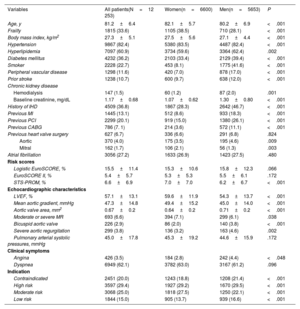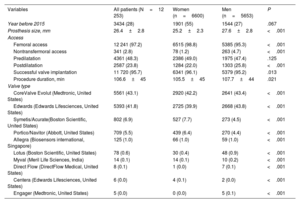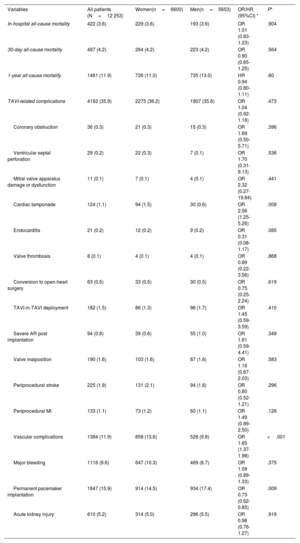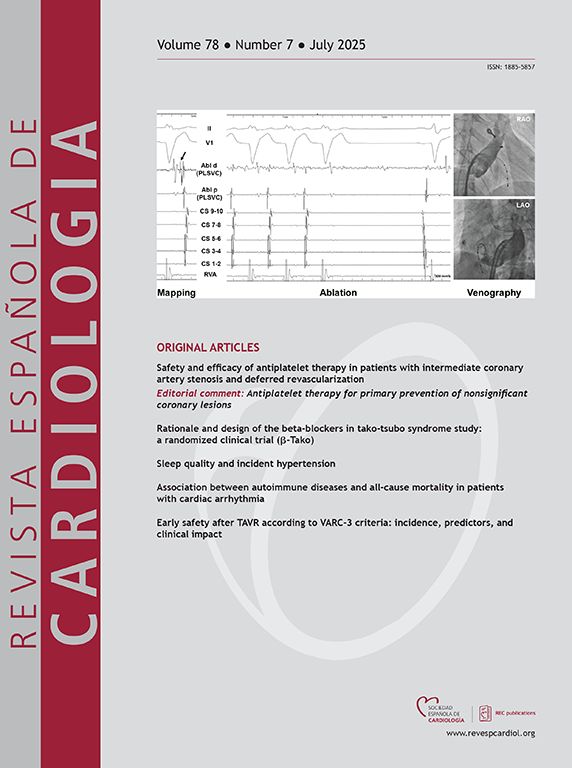
Impact of gender on long-term outcomes after transcatheter aortic valve implantation (TAVI) remains uncertain. We aimed to investigate gender-specific differences in TAVI and its impact on outcomes.
MethodsThis analysis used data from the prospective Spanish TAVI registry, which included consecutive TAVI patients treated in 46 Spanish centers from 2009 to 2021. The primary endpoint was all-cause mortality at 12 months. Secondary endpoints included in-hospital and 30-day mortality and TAVI-related complications. Adjusted logistic and Cox regression analyses were performed.
ResultsThe study included 12 253 consecutive TAVI patients with a mean age of 81.2±6.4 years. Women (53.9%) were older, and had a higher STS-PROM score (7.0±7.0 vs 6.2±6.7; P < .001) than men. Overall, the TAVI-related complication rate was similar between women and men, with specific gender-related complications. While women more frequently developed in-hospital vascular complications (13.6% vs 9.8%; P <.001) and cardiac tamponade (1.5% vs 0.6%; P=.009), men showed a higher incidence of permanent pacemaker implantation (14.5% vs 17.4%; P=.009). There was no difference in all-cause mortality either in hospital (3.6% vs 3.6%, adjusted OR, 1.01; 95%CI, 0.83-1.23; P=.902), at 30 days (4.2% vs 4.2%, adjusted OR, 0.90; 95%CI, 0.65-1.25; P=.564) or at 1 year (11% vs 13%, adjusted HR, 0.94; 95%CI, 0.80-1.11; P=.60).
ConclusionsWomen treated with TAVI are older and have more comorbidities than men, leading to distinct complications between genders. Nevertheless, all-cause mortality in the short-term and at 1-year was similar between men and women.
Keywords
Identify yourself
Not yet a subscriber to the journal?
Purchase access to the article
By purchasing the article, the PDF of the same can be downloaded
Price: 19,34 €
Phone for incidents
Monday to Friday from 9am to 6pm (GMT+1) except for the months of July and August, which will be from 9am to 3pm








